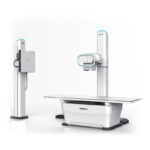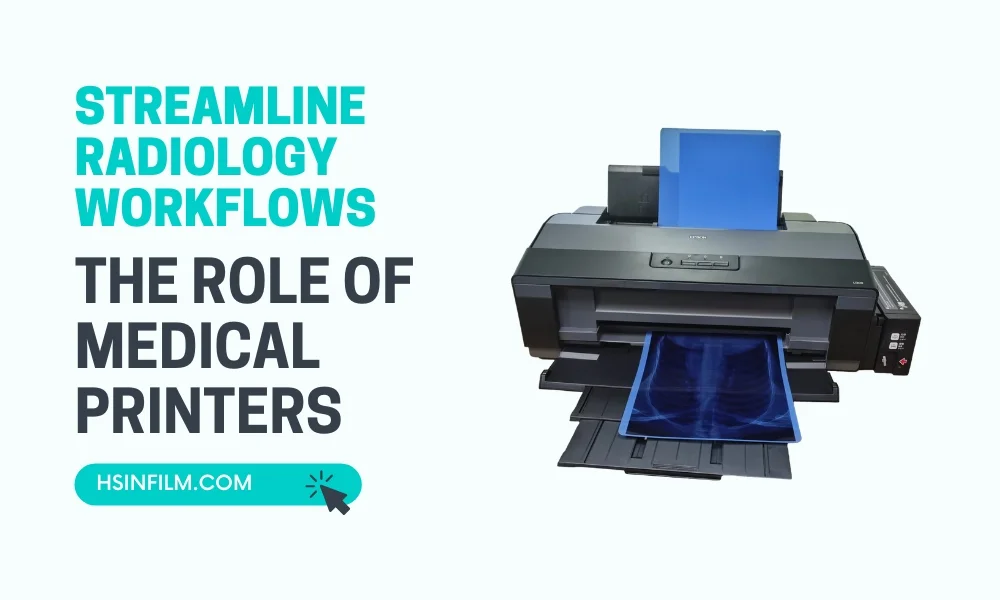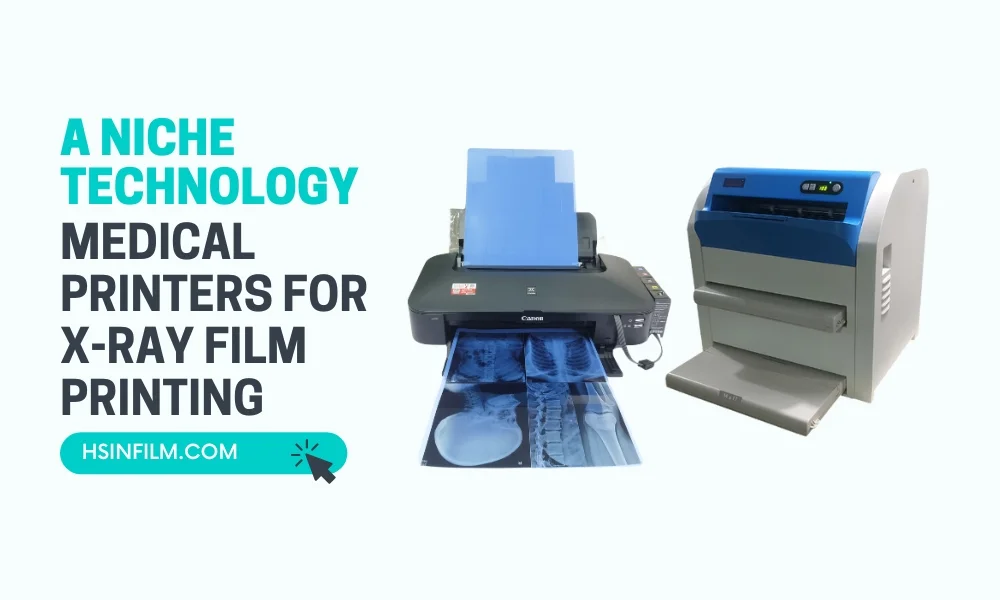Welcome to our comprehensive guide on where to buy X-ray film, an essential tool in the field of medical imaging. X-ray films play a critical role in diagnosing and treating various medical conditions, providing valuable insights into a patient’s health.
As a medical professional, you understand the importance of reliable sources for purchasing X-ray films. In this blog, we will explore the factors to consider when buying X-ray films, where to find reputable suppliers, and how to ensure the best value for your investment.
Table of Contents
Factors to Consider When Buying X-ray Film

Before you start looking for suppliers, it’s essential to understand the key factors that influence your purchase decision:
Film Type and Size Requirements
X-ray films come in various types, each designed for specific applications, such as general radiography, dental imaging, mammography, or industrial purposes. Consider the type of imaging you perform and the sizes of films required for your equipment.
Image Quality and Sensitivity
The quality of X-ray images depends on the film’s sensitivity and ability to capture fine details. High-quality films with optimal sensitivity ensure accurate diagnosis and help you provide the best possible care to your patients.
Compatibility with X-ray Equipment
Ensure that the X-ray films you purchase are compatible with your existing imaging equipment. Different X-ray machines may require specific types or sizes of films for optimal performance.
Cost and Budget Considerations
Budget constraints are a reality for most medical facilities. While cost is a significant factor, prioritize quality and reliability to avoid compromising patient care.
Reputation and Reliability of Suppliers
Choose suppliers with a strong track record in the industry. Read customer reviews, testimonials, and references to gauge the reputation and reliability of potential suppliers.
Where to Buy X-ray Film
Now that you understand the important factors, let’s explore the various sources where you can purchase X-ray film:
Hospital Supply Stores and Medical Equipment Suppliers
Local hospital supply stores and medical equipment suppliers often stock X-ray films. They provide the advantage of immediate availability and in-person assistance.
Online Medical Supply Websites
Online platforms offer a wide selection of X-ray films, making it convenient to compare products and prices from different suppliers. Ensure you buy from reputable websites with secure payment options.
X-ray Film Manufacturers and Authorized Dealers
Directly purchasing from X-ray film manufacturers or their authorized dealers ensures authenticity and quality assurance. They can also provide technical support and warranty coverage.
Local Distributors and Authorized Resellers
Authorized distributors and resellers offer genuine X-ray films and may provide additional services like training and after-sales support.
Bulk Purchasing and Discounts
Consider buying X-ray films in bulk to benefit from volume discounts and long-term contracts. Bulk purchasing can help optimize costs without compromising on quality.
Evaluating Suppliers and Products
Once you identify potential suppliers, it’s essential to evaluate them and their products thoroughly:
Conducting Research on Suppliers
Gather information about the reputation, history, and customer feedback of each supplier. Look for established companies known for delivering quality products and excellent customer service.
Reading Customer Reviews and Testimonials
Customer reviews and testimonials offer valuable insights into the experiences of others who have purchased from the same supplier. Pay attention to any recurring positive or negative feedback.
Requesting Sample X-ray Films for Evaluation
Ask suppliers for sample X-ray films to assess their quality, sensitivity, and compatibility with your equipment. Evaluating samples firsthand can help you make an informed decision.
Comparing Pricing and Services Offered
Obtain quotes from different suppliers and compare pricing. Look beyond the initial cost and consider the value offered, such as additional services, warranties, and technical support.
Checking for Certifications and Quality Standards
Ensure that the X-ray films meet industry quality standards and are certified for medical use. Certifications like FDA approval signify adherence to strict quality and safety requirements.
Ensuring Proper Handling and Storage
Proper handling and storage of X-ray films are essential to maintaining their quality and diagnostic value:
Understanding X-ray Film Shelf Life
X-ray films have a limited shelf life, and using expired films can lead to degraded image quality. Be aware of the expiration dates and rotate inventory accordingly.
Checking Expiration Dates and Batch Numbers
Inspect each X-ray film for clear expiration dates and batch numbers. These details are crucial for tracking and managing inventory effectively.
Proper Packaging and Storage Requirements
Store X-ray films in a cool, dry, and dark environment to prevent damage from humidity, light, or temperature fluctuations. Proper packaging, such as protective sleeves, helps maintain film integrity.
Managing Inventory and Reordering Practices
Implement an inventory management system to track film usage and ensure timely reordering. Avoid running out of critical supplies by establishing a reordering threshold.
Key Considerations for Digital X-ray Imaging
In the digital era, many healthcare facilities are transitioning to digital X-ray imaging. Here are some essential considerations:
Advantages of Digital X-ray Over Traditional Film
Digital X-ray systems offer immediate image acquisition, reduced radiation exposure, and the ability to manipulate images for better visualization.
Choosing Between CR (Computed Radiography) and DR (Digital Radiography)
Select the most suitable digital technology for your practice based on your budget and imaging needs. CR systems can be a cost-effective entry point, while DR systems provide superior image quality.
Identifying Reliable Digital X-ray Suppliers
Look for reputable suppliers with a proven track record in digital imaging technology. Consider their expertise, training offerings, and support services.
Integrating Digital X-ray Systems with Existing Equipment
Ensure that your digital X-ray system is compatible with your existing X-ray machines and imaging software. Seamless integration optimizes workflow efficiency.
Specialized X-ray Films and Applications
Apart from general radiography, specialized X-ray films cater to specific medical applications:
Dental X-ray Films
Dental X-ray films are designed to capture detailed images of the teeth and oral structures. Choose dental films that offer high-resolution images for accurate dental assessments.
Mammography Films
Mammography films are optimized for breast imaging and require high sensitivity to detect small abnormalities. These films play a crucial role in breast cancer screening and diagnosis.
Industrial X-ray Films
Industrial X-ray films are used for non-destructive testing and inspection of materials in various industries, including aerospace, automotive, and manufacturing.
Veterinary X-ray Films
Veterinary X-ray films are designed for use in veterinary medicine, catering to the imaging needs of animals.
Nuclear Medicine and Radiation Oncology Films
These specialized films are used in nuclear medicine and radiation oncology for diagnostic imaging and treatment planning.
Tips for Cost-Effective Purchasing
As you seek to optimize costs, consider these strategies:
Bulk Purchasing and Long-Term Contracts
Purchasing X-ray films in bulk can lead to significant cost savings. Negotiate long-term contracts with suppliers for better pricing and consistent supply.
Negotiating Pricing and Terms with Suppliers
Negotiate with suppliers to obtain favorable pricing and terms, especially when committing to large orders.
Exploring Group Purchasing Organizations (GPOs)
Joining a Group Purchasing Organization (GPO) allows healthcare facilities to benefit from collective buying power and negotiated discounts.
Considering Refurbished or Recertified X-ray Films
Some suppliers offer refurbished or recertified X-ray films at a lower cost. Ensure these films meet quality and safety standards before purchasing.
Ensuring Compliance and Legal Considerations
When purchasing X-ray films, be mindful of legal and regulatory requirements:
Adhering to Regulatory Guidelines and Quality Standards
Ensure the X-ray films you purchase comply with relevant regulatory guidelines and quality standards to guarantee patient safety.
Protecting Patient Data and Privacy
When dealing with suppliers, safeguard patient data and maintain confidentiality in accordance with data protection laws.
Understanding Import and Export Regulations
If purchasing X-ray films from international suppliers, familiarize yourself with import and export regulations to facilitate smooth transactions.
Dealing with Warranty and Return Policies
Understand the warranty and return policies of suppliers in case of any unforeseen issues with the purchased X-ray films.
Conclusion
Choosing the right source for purchasing X-ray films is a crucial decision that directly impacts patient care and diagnostic accuracy.
By considering essential factors, evaluating suppliers, and ensuring proper handling, medical professionals can make informed purchase decisions.
Whether you opt for traditional X-ray films or embrace digital imaging technology, remember that the quality and reliability of your X-ray films are instrumental in providing the best possible healthcare services to your patients.
Always prioritize patient care and safety when selecting your X-ray film suppliers.
Frequently Asked Questions (FAQ)
1. Where can I buy X-ray film?
You can purchase X-ray film from medical supply stores, online retailers, specialty imaging suppliers, and directly from manufacturers.
2. Are there online stores that sell X-ray film?
Yes, many online stores such as Amazon, eBay, and specialty medical supply websites offer a variety of X-ray films.
3. Can I buy X-ray film directly from the manufacturer?
Yes, many manufacturers sell X-ray film directly to consumers through their websites or sales representatives.
4. What factors should I consider when buying X-ray film?
Consider the type and size of the film, compatibility with your X-ray equipment, brand reputation, and specific needs such as resolution quality and sensitivity.
5. Is it possible to buy used or surplus X-ray film?
Yes, some suppliers and online platforms offer used or surplus X-ray film at discounted prices. Ensure it is in good condition and check expiration dates.
6. Are there different types of X-ray film available for purchase?
Yes, there are various types such as standard X-ray film, dental X-ray film, and specialty films for different diagnostic imaging needs.
7. Can I find X-ray film in local stores?
Some local medical supply stores or specialty imaging centers might carry X-ray film. It’s best to call ahead and confirm availability.
8. Are there bulk purchase options for X-ray film?
Yes, many suppliers offer bulk purchase options, which can be more cost-effective for medical facilities and large practices.
9. How can I ensure the quality of the X-ray film I buy?
Purchase from reputable suppliers or manufacturers, read customer reviews, and check for product guarantees or certifications.
10. What is the cost range for X-ray film?
The cost of X-ray film varies depending on the type, size, and quantity. Prices can range from $20 for small dental films to several hundred dollars for larger, high-quality medical films.
11. Do I need a special license or prescription to buy X-ray film?
Generally, you do not need a license or prescription to buy X-ray film, but some suppliers may require proof of professional use, especially for medical-grade films.
12. Can veterinary clinics buy the same X-ray film as medical clinics?
Yes, many types of X-ray film are suitable for both human and veterinary use, but always confirm the film’s specifications to ensure it meets your needs.




















